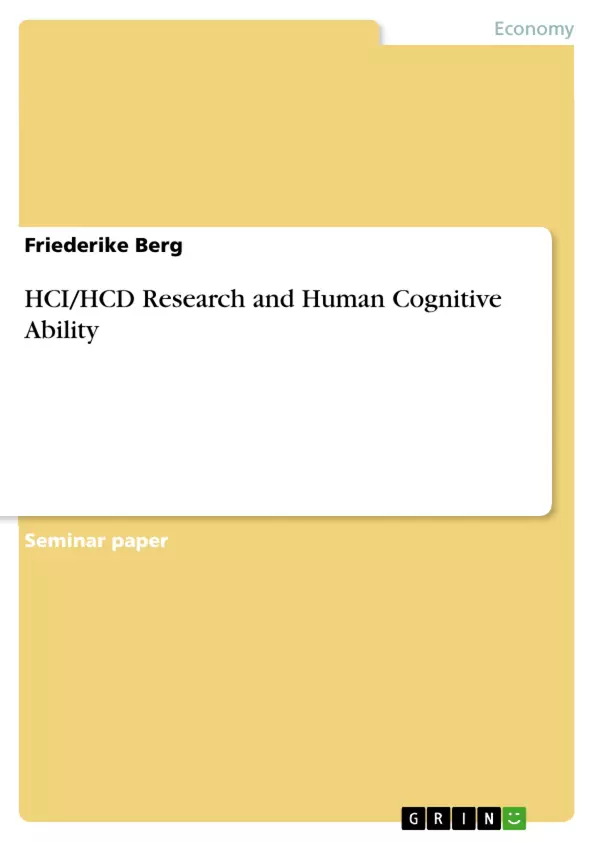Skitch is a visual communication application. It enables the user to capture, edit and share screenshots. Skitch uses the user’s previous knowledge, analogy as well as user’s long term memory because Skitch’s user interface is very similar to the user interfaces of Paint, one of Mircosoft’s first established applications, and Photoshop, one of the most used applications from today. The majority of users grow up with Microsoft applications. Furthermore, the application is taking advantage of the structure and organization as Paint had it way back then and Photoshop has it today. The tools are shown as a left sidebar menu.
Inhaltsverzeichnis (Table of Contents)
- HCI/HCD RESEARCH & HUMAN COGNITIVE ABILITY
- VISUAL COMMUNICATION APPLICATION: SKITCH
- PEOPLE SIMULATOR VIDEO GAME: THE SIMS (2000)
- USER ACTIVITY ANALYSIS TOOL: HOTJAR
Zielsetzung und Themenschwerpunkte (Objectives and Key Themes)
This reflection paper explores the interplay between human cognitive ability and Human-Computer Interaction (HCI) / Human-Centered Design (HCD) principles. It examines the cognitive processes involved in using three specific digital tools: a visual communication application, a people simulator video game, and a user activity analysis tool.
- Cognitive Processes in HCI/HCD
- User Interface Design and Cognitive Affordances
- The Role of Memory, Analogy, and Expertise Development
- Procedural and Deductive Learning in Interactive Systems
- Observational Learning and User Experience
Zusammenfassung der Kapitel (Chapter Summaries)
- Visual Communication Application: Skitch: This chapter analyzes the design of Skitch, a visual communication application, in terms of its reliance on user memory and analogy. It highlights how Skitch leverages familiar interface elements and visual affordances to facilitate user interaction and learning.
- People Simulator Video Game: The Sims (2000): This chapter focuses on the game "The Sims", exploring how it employs procedural learning to guide players through the game mechanics. It examines the use of icons, visual and auditory cues, and observational learning to promote engagement and gameplay.
Schlüsselwörter (Keywords)
This reflection paper explores key concepts related to Human-Computer Interaction (HCI), Human-Centered Design (HCD), human cognitive ability, interface design, visual affordances, memory, analogy, procedural learning, deductive problem solving, observational learning, user experience, and digital tools such as Skitch and The Sims.
Frequently Asked Questions
How does Skitch leverage human memory for its design?
Skitch uses interface elements similar to Microsoft Paint and Photoshop, taking advantage of users' long-term memory and familiarity with established applications.
What is the role of analogy in User Interface design?
Analogy allows users to apply knowledge from one tool (like Paint) to a new one (like Skitch), facilitating faster learning through visual affordances.
How does "The Sims" utilize procedural learning?
The game guides players through mechanics using icons, visual/auditory cues, and observational learning to promote engagement without complex manuals.
What is Human-Centered Design (HCD)?
HCD is an approach to system design that focuses on the users, their needs, and their cognitive abilities to ensure a positive user experience.
What is Hotjar used for in HCI research?
Hotjar is a user activity analysis tool that helps researchers understand how people interact with websites through heatmaps and session recordings.
- Quote paper
- Friederike Berg (Author), 2018, HCI/HCD Research and Human Cognitive Ability, Munich, GRIN Verlag, https://www.grin.com/document/505673



